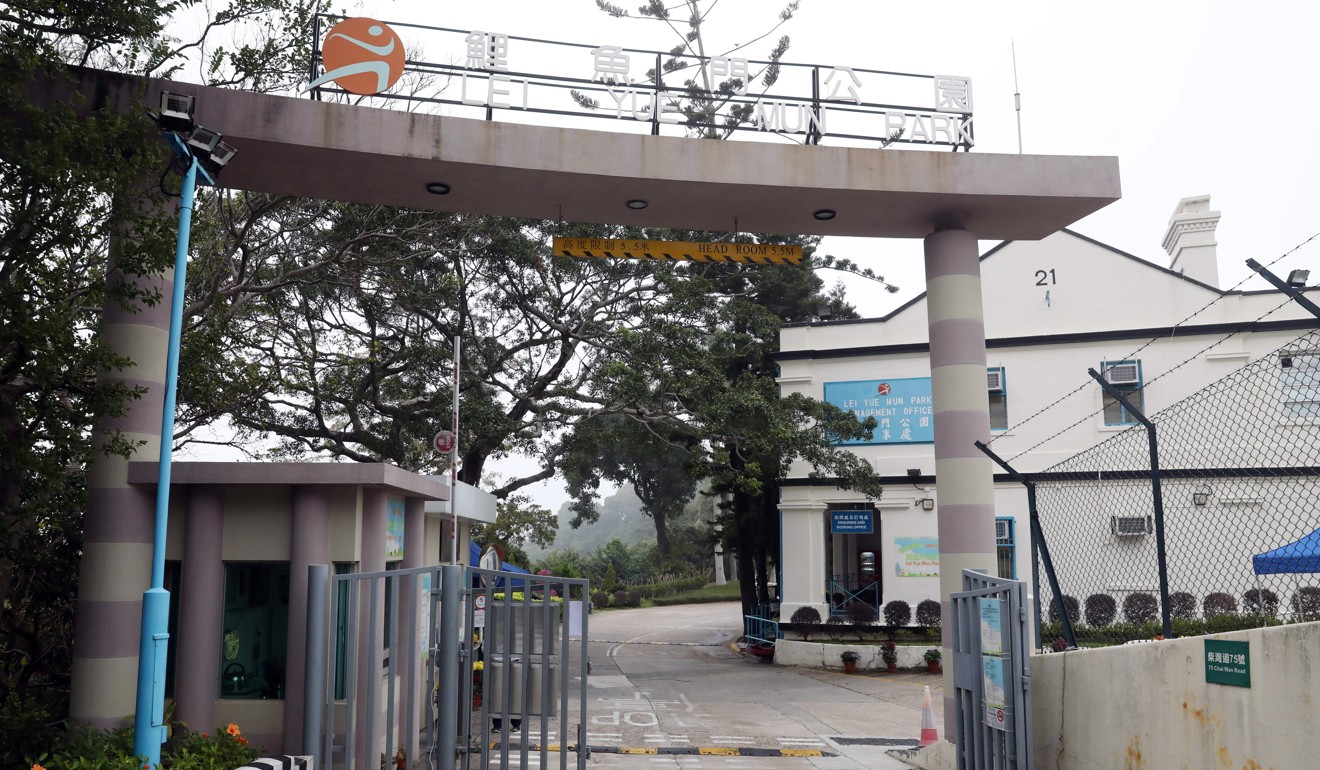
China coronavirus: quarantine anyone coming to Hong Kong from epicentre of deadly outbreak immediately, medical experts say
- No-nonsense suggestion comes as police urged to track down residents from Hubei province staying in city
- Calls for government to focus resources on monitoring Hongkongers who have returned from Hubei province after Lunar New Year holiday

Hongkongers who have returned to the city from the epicentre of the deadly Wuhan coronavirus outbreak in mainland China should be quarantined, by force if necessary, a leading medical expert has said.
Professor David Hui Shu-cheong, a respiratory medicine expert from Chinese University, suggested the no-nonsense approach, as Dr Ho Pak-leung, a top microbiologist from the University of Hong Kong (HKU), said police should track down any residents of Hubei province in the city and immediately isolate them or deport them back to the mainland.
Their comments came as other experts said the government should focus its resources on monitoring those who have returned to the city from Hubei province. Between 200,000 and 300,000 residents are estimated to have arrived from the mainland since Tuesday.
Ho said the government should follow Macau’s example and have police check Hong Kong hotels for Hubei residents, a suggestion that received a cautious welcome from the head of the city’s largest police officers’ union.

Lam Chi-wai, chairman of the Junior Police Officers’ Association, which represents 80 per cent of the 31,000-strong force, did not object to the idea, but said medical staff should accompany officers.
“The job involves medical knowledge,” Lam said. “So, medical staff should join us on each operation as they are needed to explain the situation to visitors and conduct check-ups on them.
“If the law empowers us and makes it compulsory to isolate the individuals concerned, we will act accordingly. As a professional force, we do not say no to our work, especially at a time when we are needed.”
Hui said Hongkongers returning from Hubei province should be placed in quarantine in holiday camps. People from the province had been at the epicentre of the outbreak and carried the highest risk of spreading it further, he added.
The government has already designated three holiday camps – Lady MacLehose Holiday Village, which has already been used, Lei Yue Mun Park and Holiday Village, as well as Po Leung Kuk Jockey Club Pak Tam Chung Holiday Camp – as quarantine centres for people who showed no symptoms, but were deemed to have had close contact with others who were infected.
On Tuesday, Chief Executive Carrie Lam Cheng Yuet-ngor revealed the government had received requests for help from about 200 Hongkongers in Hubei province, which has the most confirmed cases of the disease.
At least 14 cities there, including Wuhan, are under total lockdown, meaning public transport has been halted and people are prevented from leaving.
Lam said her administration was discussing with mainland Chinese authorities how to help those stranded in the province return to the city.
Speaking on a radio programme on Wednesday, Professor Yuen Kwok-yung from HKU said he believed there would be between 200,000 and 300,000 Hongkongers returning from the mainland as the holiday ended, potentially bringing the virus with them.
As it would be impossible to conduct medical surveillance on all these people, he said resources should be focused on those who returned from Hubei province.
“They should contact health department officers. Those officers should visit their flats or make calls regularly to make sure they have worn masks, are not going out, and do not have fever,” Yuen said.
He added it would not be possible to do the same for residents returning from other provinces, and that would rely on the self-awareness of the public, such as to always wear masks and carry alcohol hand sanitisers when going out.
Dr Chuang Shuk-kwan, head of the communicable disease branch of the Centre for Health Protection, said in a press conference on Wednesday that the government was still discussing measures on returning travellers, adding that she did not know the details at the moment.
On Monday, the government asked Hongkongers who had visited Hubei province in the past 14 days to approach Department of Health officers for assessment upon their return. They would be placed under medical surveillance by the department, and would be required to wear surgical masks and self-isolate for 14 days.
Those who have returned from other parts of the mainland have also been advised to stay at home for two weeks, and wear a mask when going outside.
Meanwhile, Democratic Party lawmaker Lam Cheuk-ting and Civic Party’s Jeremy Tam Man-ho were among critics questioning the effectiveness of government measures announced earlier on cross-border travel.
“On [shopping online platform] Taobao, there are still many business visas selling for dozens of dollars for people to enter Hong Kong,” Lam said.
He added that mainland visitors could also apply for a visa to Hong Kong to attend funerals, seek medical treatment or visit seriously ill patients.
Other “transit services” were also found for sale on online shopping platforms. These included “flight tickets”, said to be authentic enough to cheat officers, for Chinese travellers wanting to cross the border for transit.
Tam, meanwhile, said the transit system at the airport exposed another loophole, with no quarantine measures or health checks.
The lawmaker launched a protest against the Airport Authority on Wednesday, urging the closure of the Skypier, which provides a ferry transit service connecting to nine ports on the mainland and Macau.
In response to visitors exploiting the transit service to stay in Hong Kong, the Immigration Department said those arriving with no genuine intention to transit could be charged for making false statements and using fake documents.
Additional reporting by Kanis Leung